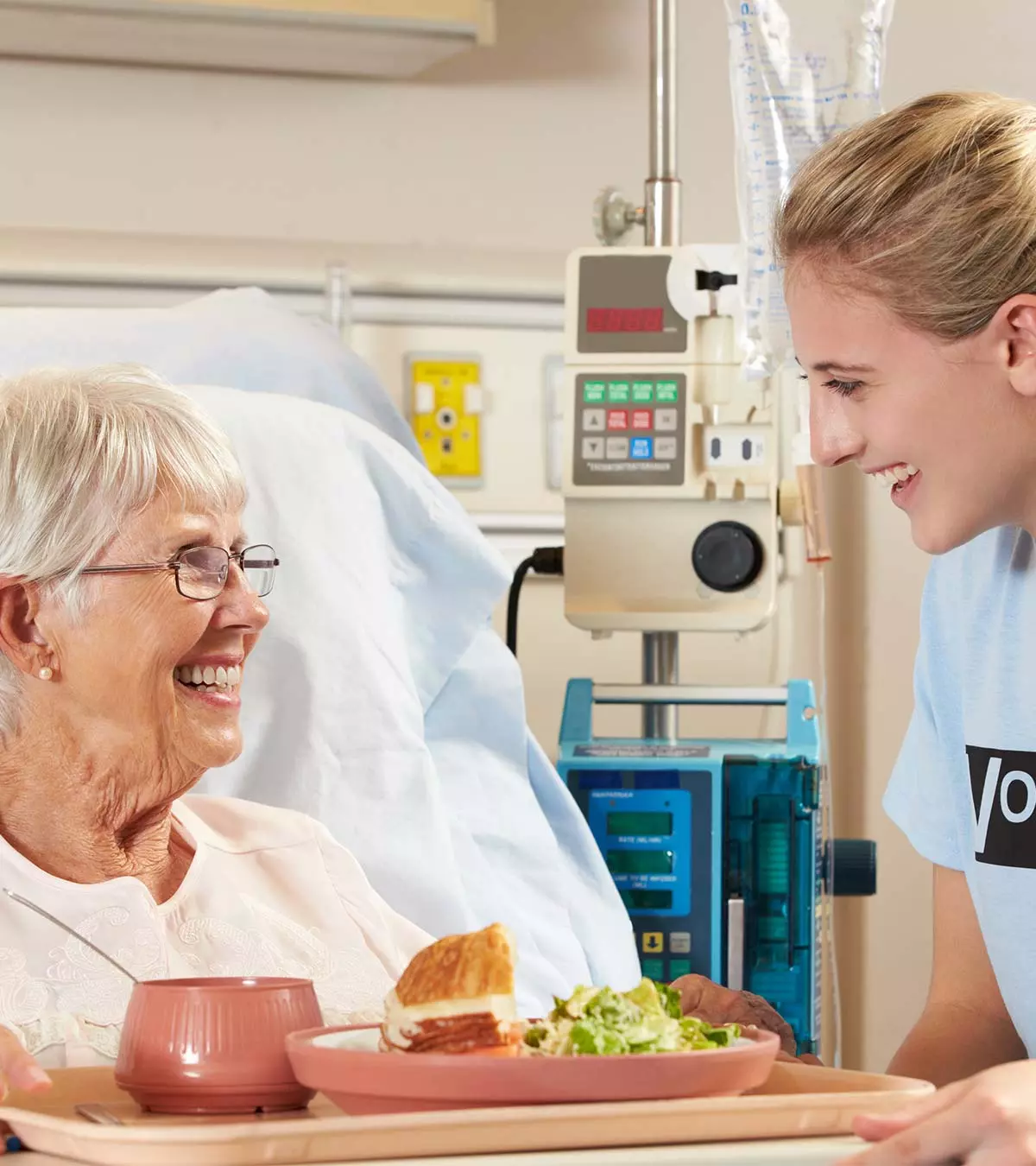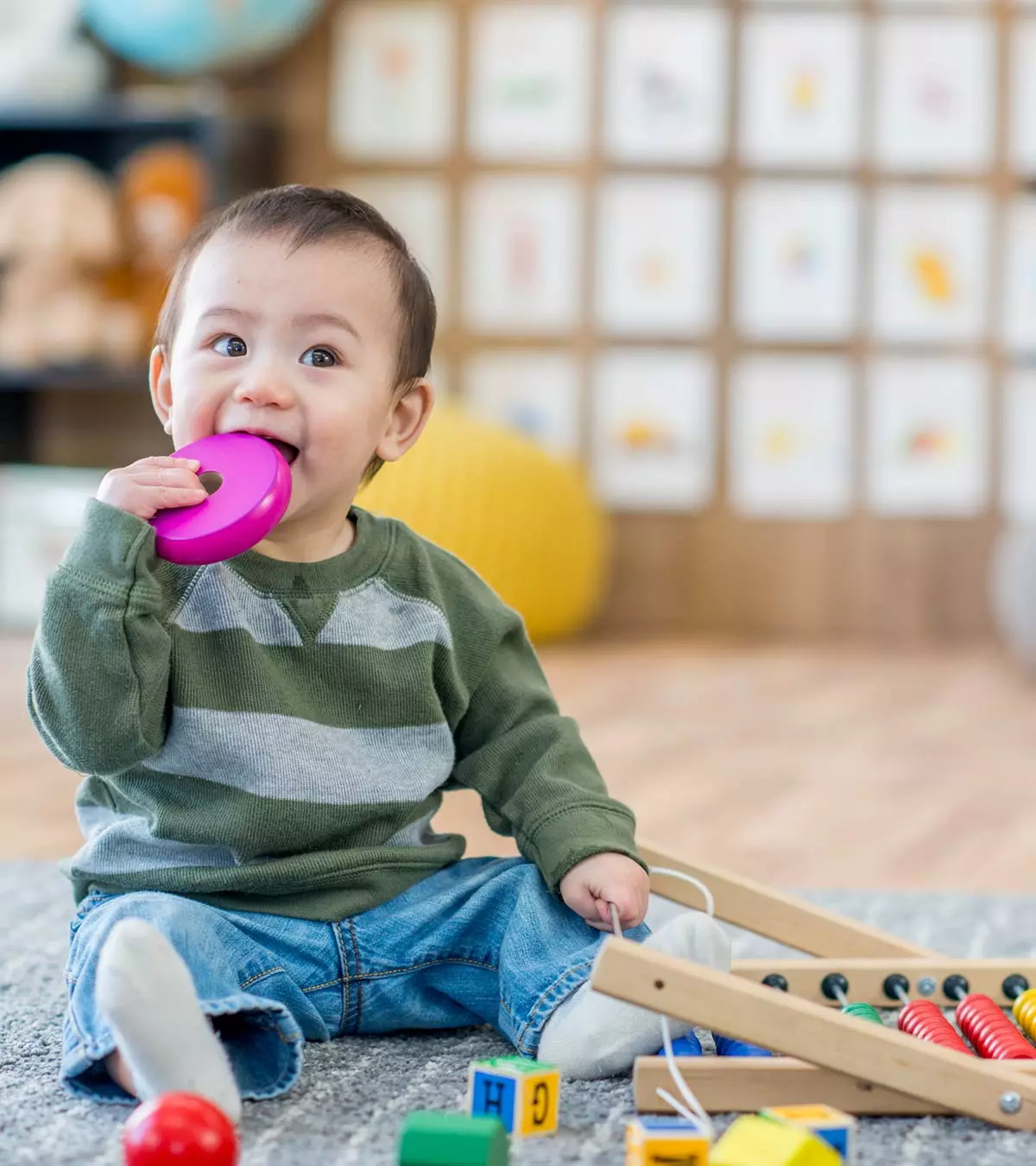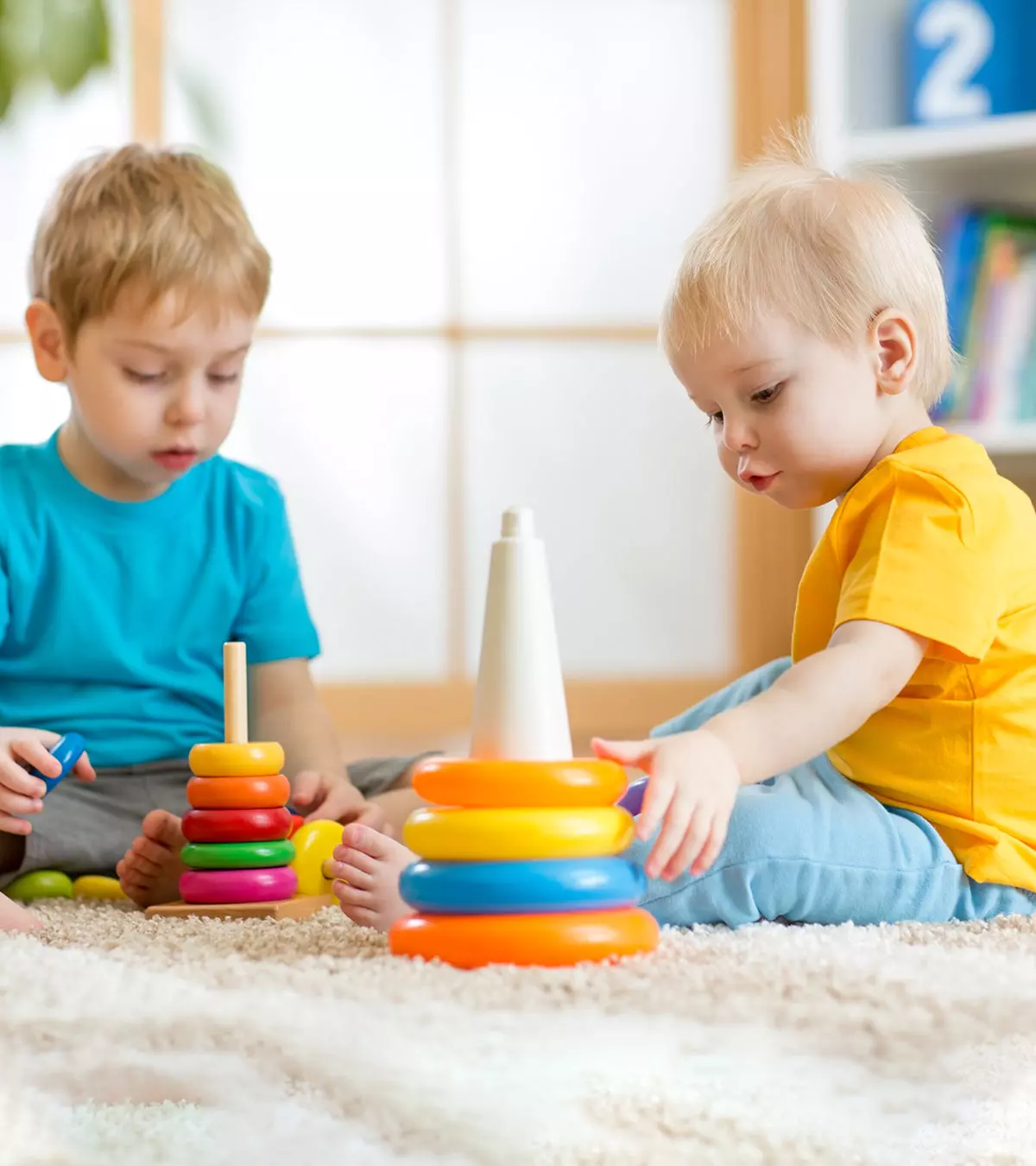
Image: Shutterstock
As a parent, you want your teen to learn all vital life skills, so you may keep thinking how to make your teenager responsible. You love your teen and want them to be happy and content all the time. However, while raising them, you may pamper and shelter them to the extent that you seem to have lost your hold on them. Therefore, it is essential to know that the right parenting influences your teen’s behavior. You should take utmost charge of shaping up your teen’s personality and helping them develop into a responsible individual. Read this post to learn about tips that could make them responsible and inculcate essential skills.
Key Pointers
- Teaching essential life skills can help teens become responsible individuals.
- Involving teens in household chores and setting expectations fosters responsibility and accountability.
- Trusting teens and giving them independence to make choices is crucial.
- Praising teens when they meet expectations and holding them accountable for not following rules helps them learn responsibility.
How To Make Your Teenager Responsible?
You might expect your teen to behave like an adult. But remember, they are still growing. The hormonal roller coaster going through their body affects not just their physical growth, but their social behavior too (1). They are confused. They may not say it aloud, but they need your guidance more than anything else right now.
Now is a great time to shape their behavior and teach them discipline. But you have to be subtle. Lectures just don’t just work with teenagers. So, how can you make your teenager responsible? Here are some effective strategies to guide your teenager towards becoming more responsible (2)
 Do remember
Do remember1. Set expectations
Yes, you love your child without expectations. But now is a good time to set some. Once your teen knows what is expected of them, they will be forced to work towards it. This is the first step towards learning responsibility.
But make sure the expectations are reasonable and age-appropriate. Impossible expectations will just end up frustrating both your teen and you (3). Here are a few ways you can set expectations for your teen.
- Communicate clearly: Set clear expectations regarding responsibilities, behavior, and values. Also, be specific about what you expect regarding schoolwork, social behavior, respect, and chores.
- Lead by example: Model the behavior you expect from your teen, such as honesty, respect, and responsibility. Although motivating them through words might have an impact on them, it’s your actions that can influence their choices.
- Be supportive and encourage independence: Listen to your teen’s concerns and adjust your expectations accordingly. Moreover, allow them to be responsible for their actions and decisions and teach them problem-solving skills.
- Assess and adjust: Expectations should evolve as your teen develops. Have regular conversations with them about responsibilities and expectations to ensure you are on the same page.
2. Make a chores list

If there is one thing your teen hates more than lectures, it is chores. But chores are a great way to assign responsibility (4). So, make a list of chores together with your teen and let them know what needs to be done. Also, set certain house rules for teenagers that they need to follow at all costs. Discuss the list as a family and place it somewhere prominent.
Be warned! This won’t be easy. Chores are not fun, at least not for teens. But as they grow up, chores will be a part of their lives. So, start training today.
And let there be consequences. If your teen fails to do the chores assigned to them, talk with them on what consequences are appropriate and follow through with it. Most importantly, teach them that mistakes are wonderful learning opportunities and talk to them about what they learn from their mistakes and how they can make it better going forward. That will teach them how to be responsible teenagers. Be a role model for them rather than forcing them to do things they do not like.
 Do remember
Do remember3. Offer choices
Life is about choices. The sooner your teen realizes that, the better. So, get them involved in household decisions. Planning to buy a new household appliance? Or planning a vacation? Ask your teenager for their views. This will give them a sense of responsibility (5). You can also plan weekly family meetings where you, as a family, can decide on menu plans, chores list, recreation ideas, etc and come together as a family to brainstorm solutions together to solve problems. This helps in developing your teenager’s decision-making skills.
4. Trust your teenager

This is a big one. It’s not easy, but learn to give your teen the independence to make the right choices. If they say they will babysit your five-year-old while you go out for a movie, trust them. Your instinct might scream otherwise, but for once, overlook it. While fear might stop you from trusting your teen completely, giving them age-appropriate responsibilities and making sure they understand what gaining extra responsibility entails will help them learn the necessary skills (6). Your trust is just the incentive they need to be more responsible.
5. Let there be consequences
Don’t overprotect them. If they have not finished their assignment, let them face the consequences naturally. Don’t write a note to help them out. This way they will learn the truth about natural consequences. You reap what you sow. So let your child take accountability for their actions and act with maturity. Parenting expert and youth minister Mark Gregston says, “The idea here is to stop helping teenagers so much – the way you have helped them when they were younger…parents must make room for their older children to make mistakes. You help a teen best by letting them deal with the natural results of their decision, fall down a bit in the process, and then letting them figure out how to get back up (7).”
 Point to consider
Point to consider6. Reward your teen

No, we are not talking about bribing your teen. But your teen needs to know that good begets good. So, if they live up to their part of the bargain, reward them. How you reward them depends completely on you. A few words of appreciation, a pat on the back, a book, a trip to watch their favorite movie – anything to show you’ve noticed their efforts. Alternatively, you can also try the reverse approach.
Hamza Ali, a father, shares how he uses negative reinforcement to reinforce desired behavior in his children. He says, “I give them (his children) an allowance every week, and I give it to them every week regardless. It means that every week, they start with $20 (for example). If they do anything wrong during that week that they know is wrong, I’ll take away some amount. For instance, I’ll take away $5 for not brushing their teeth, $15 if they get into a fight. So, now they are disciplined. They say these are the things I’m not allowed to do because Dad will take away my money. It is because they love that allowance and want to spend it. They know what they should and shouldn’t do. So, instead of giving them money as a reward, I do the reverse. Give them the money and take it away as they do stuff that’s not acceptable (i).”
7. Get your teen to volunteer
This is a great way to help your teen understand that the world does not revolve around them. When they are involved in a cause, they will realize their privilege and responsibility and be able to contribute to society. Teens who engage in volunteer work tend to develop a robust work ethic, essential life skills, patience, leadership abilities, respect for others, and an understanding of diverse communities and cultures. Volunteering is also said to reduce drug and substance abuse in teens considerably (8). Besides, it can boost their self-esteem and help them become more empathetic and generous.
8. Join a youth group
Encourage them to join a youth group—it may be part of your church or a neighborhood youth club. When they work with others, sometimes in a leadership position, they will learn to take their responsibilities seriously. Moreover, being a part of a community is beneficial for teens’ emotional and social needs. It can help them feel a sense of belonging and mutual support, develop their confidence, and help them understand the importance of emotional maturity, selflessness, trust, and emotional regulation (9). These youth groups not only promote character development but also help them learn and understand the perspectives of others and serve the local community.
9. Help your teen set goals

Talk to your teen about their dreams and long term plans. If they have a career in mind, sit down and chalk out a route map. Help them take small steps, keeping the big picture in mind. But tell them the journey is theirs. Let them know that their dream is their responsibility. Only they can make it come true. Discipline for teenagers is crucial as they work continuously to achieve their goals. Having a goal plan will teach them self-discipline and also promote sincerity and hard work. Here are a few tips to ensure your teens reach their goals (10).
- Set realistic goals: Realistic and specific goals are easier to achieve. Ensure your child doesn’t have to deviate too much from their daily routine to work for their goals.
- Have patience: It’s not easy to change daily habits, so it might take a few months of consistent work to notice positive changes. Try not to lose hope even if they fail to maintain their streak sometimes.
- Do it for yourself: Your teen can achieve their goal only when they desire it wholeheartedly. Their actions won’t work if they do them to please someone else. Working out of obligation might make them lose motivation.
- Acknowledge failures: Slip-ups are part of the learning process. So, don’t reprimand them if they make a mistake or give up at times. Encourage them to learn from their mistakes and start again.
 Point to consider
Point to consider10. Respect your teen’s individuality
You can’t live your teen’s life. Your teen needs to learn that their life—all the good and bad included—is theirs to live. So one part of parenting is to accept and respect that their way of doing things is different. Psychologist Carl Pickhardt says, “During adolescence, (starting around ages 9 -13) the young person wants to redefine who they are by detaching from how they were as a child, from how parents are, and from how parents want them to be…A lot of individuality issues that parents can have with a teenager come down to their treatment of individual differences. I believe their best option for remaining connected as more diversity develops between them and their teenager is to bridge the experimental and emerging differences with interest (11).” If they make a choice that is contrary to your wish, accept it. This can mean something small, like something they want to buy, or it can be something life changing, like a career choice.
11. Teach time management skills
Teens can often feel overwhelmed with school pressure and daily tasks. So, it’s important to help them manage their time so they can handle daily pressures and have enough space for self-care. Assist your teen in navigating a busy schedule by sitting together to discuss and plan. Determine appropriate time slots for chores, homework, and extracurricular activities, tailoring the schedule to their preferences. Whether using a digital app or a traditional calendar, this collaborative approach cultivates valuable time management skills essential for your teen’s future endeavors.
It’s important to help your teen understand that time is an essential resource, and so they need to prioritize their tasks accordingly. You cannot keep reminding them to finish their work. Your teen should actively find ways to remember their daily tasks. If you notice that major deadlines make your teen anxious, help them break the work into manageable goals and support them throughout. Also, ensure your child doesn’t spend too much time online. When you notice your teen putting in effort and succeeding, offer praise to help them stick to it (12).
12. Help your teen develop emotional control
Handling emotions can be complex, particularly for teenagers balancing school, sports, relationships, and hormonal changes. Recognizing these challenges, teaching them healthy emotional coping strategies is essential. This not only supports their current experiences but also prepares them for the emotional complexities they’ll likely face in the future. Here are a few tips to help teens manage their emotions (13).
- Identify your feelings: Help them understand what they are feeling, whether it’s anger, sadness, or hopelessness. Once they can put a name to their emotion, help them figure out the reason behind it. Knowing the trigger can help them better deal with the situation.
- Build coping strategies: While processing emotions internally might work for some, others may need to write feelings down or talk to the person who may have caused them to feel this way. Help them focus on the positive things in their life and do things that make them happy. Doing physical activities can also reduce stress and boost their mental health.
- Find support: Encourage them to talk to you, a close friend, or a trusted adult about their emotions and experiences. Companionship can provide them the comfort they may require to come to terms with their feelings. It can help them feel lighter and more relaxed. If things don’t seem to change and the negative emotions keep increasing, reach out to a professional, a school counselor, or a teacher for help.
13. Model consideration and empathy
Children and teens might naturally be capable of empathy, but they need help to develop it. Thus, it’s important to teach them what empathy means. They should learn to recognize others’ emotions, respond appropriately, and reduce self-centeredness by watching the adults around them. Emphasize how empathy should not be limited to friends and family, but also extend to people who are different from them. Help them identify the barriers to empathy, such as stereotypes, negative emotions, bias, stress, and social consequences. You can work together to create strategies to overcome them and build social and emotional skills (14).
Frequently Asked Questions
1. Why should teens be responsible?
Responsibility helps teens navigate through challenges and stay away from problems. With responsibility, they understand what is important, which makes them more focused on achieving their goals. It also helps them learn more about themselves and their capabilities and improve their communication and social skills.
2. How can a teenager show responsibility?
Teenagers can show responsibility by keeping their word, doing their chores, keeping their parents’ trust, contributing to group projects, taking care of their belongings, etc.
3. What is accountability vs. responsibility?
Accountability is acknowledging your actions and their consequences, whether good or bad. On the other hand, responsibility is taking charge of certain things you need to complete successfully.
Knowing how to make your teenager responsible can be helpful for parents to prepare their children for the future. It is important to balance limitations and freedom to give the right guidance to teens. Setting realistic expectations, making chores list, allowing choices, trusting, rewarding, and letting them face the consequences rather than overprotecting can help make your teenager more responsible. It is important to respect your teens’ individuality and help them achieve their goals. Also, forcing them to meet your expectations or punishing them may do more harm than good. You should be able to balance limitations and freedom to give them the right guidance. Parenting teenagers is not easy–it takes patience and understanding. Hence, open communication between parents and teens can go a long way in setting expectations.
Infographic: How To Make Your Teenager Responsible?
To instill responsibility in your teenager, it is essential to establish clear expectations, offer support and guidance, and model responsible behavior. With time and consistent effort, you can help your teenager build the skills and habits necessary for success. Check out the infographic below for more strategies on helping your teenager become more responsible. Illustration: Momjunction Design Team
Illustration: Handy Tips On How To Make Your Teenager Responsible

Image: Dall·E/MomJunction Design Team
Learn how to be responsible with this helpful video! Discover valuable insights, tips, and tricks to help you make responsible decisions and foster a richer and more rewarding life journey.
Personal Experience: Source
MomJunction articles include first-hand experiences to provide you with better insights through real-life narratives. Here are the sources of personal accounts referenced in this article.
i. How I teach my kids to be responsible.https://www.youtube.com/shorts/qaaCDGYldxE
References
- Jiska S. Peper and Ronald E. Dahl; (2015); Surging Hormones: Brain-Behavior Interactions During Puberty.
https://www.ncbi.nlm.nih.gov/pmc/articles/PMC4539143/ - Teaching Responsibility To Your Children.
https://centerforparentingeducation.org/library-of-articles/responsibility-and-chores/developing-responsibility-in-your-children/ - Setting Expectations for Your Teen.
https://raisingfamilies.org/blog/setting-expectations-for-your-teen/ - Benefits Of Chores
https://centerforparentingeducation.org/library-of-articles/responsibility-and-chores/part-i-benefits-of-chores/ - Be their best: Encourage responsibility in young children.
https://www.canr.msu.edu/news/encourage_responsibility_in_young_children - Principles of Parenting: Communicating With Your Teen—Trust
https://www.aces.edu/blog/topics/home-family/principles-of-parenting-communicating-with-your-teen-trust/ - Teenagers and Consequences
https://parentingtodaysteens.org/articles/teenagers-and-consequences/ - The Benefits of Teen Volunteerism: Transforming Lives and Communities
https://www.nvfs.org/benefits-of-teen-volunteerism/ - The Importance of a Community for Teenagers
https://www.allforkids.org/news/blog/the-importance-of-a-community-for-teenagers/ - 5 Facts About Goal Setting
https://kidshealth.org/en/teens/goals-tips.html - Adolescence and Individuality
https://www.psychologytoday.com/us/blog/surviving-your-childs-adolescence/201401/adolescence-and-individuality - Teaching Time Management to Teens: Less Stress, More Balance
https://www.healthychildren.org/English/family-life/family-dynamics/Pages/time-management-as-a-teen-wellness-tool-less-stress-more-balance.aspx - Dealing With Difficult Emotions
https://kidshealth.org/en/teens/stressful-feelings.html - How to Build Empathy and Strengthen Your School Community
https://mcc.gse.harvard.edu/resources-for-educators/how-build-empathy-strengthen-school-community
Community Experiences
Join the conversation and become a part of our nurturing community! Share your stories, experiences, and insights to connect with fellow parents.
Read full bio of Catherine Mok
Read full bio of Harshita Makvana
Read full bio of Deepa Thomas
Read full bio of Apoorva K

















